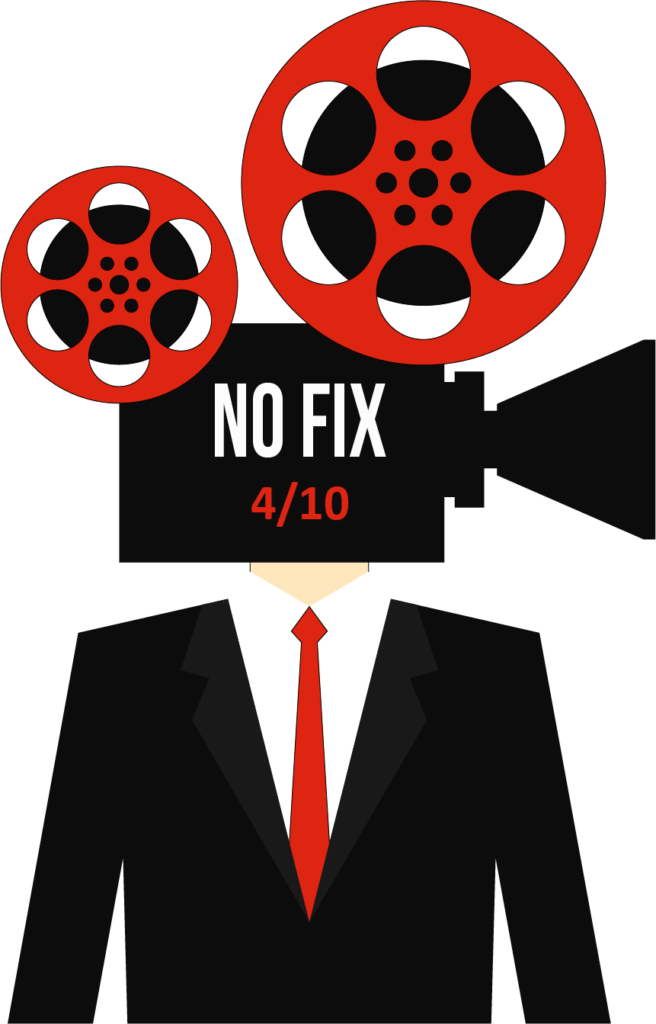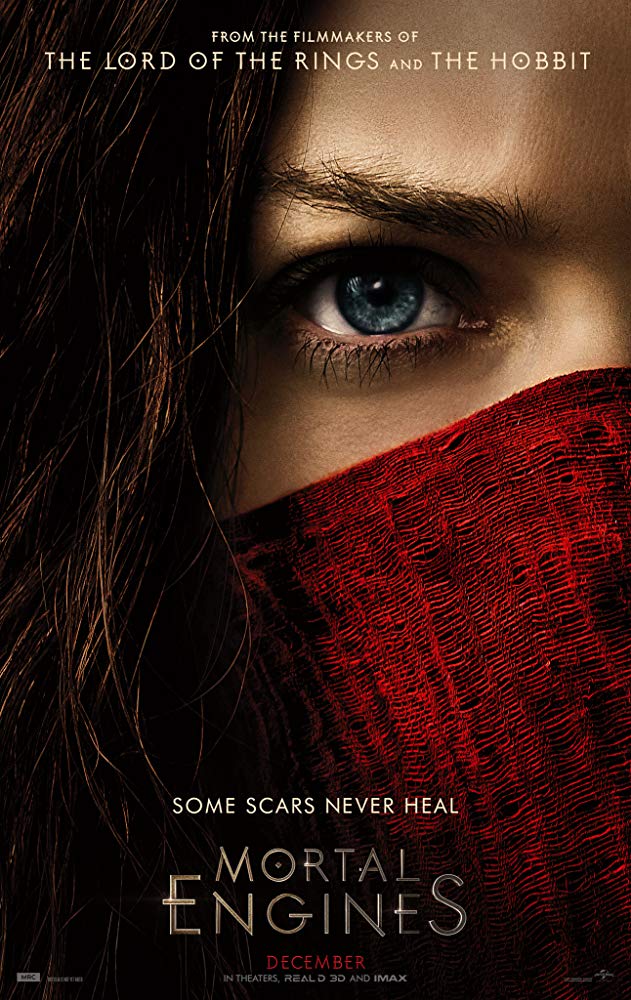Visually rich, narratively bankrupt, “Mortal Engines” is not the way to launch a fantasy franchise.


By hurriedly mushing together multiple story threads, first-time feature director Christian Rivers’ flashy adaptation of Philip Reeve’s bestseller is nearly incomprehensible. Peter Jackson is credited with co-writing the screenplay and his name is prominently used to promote the film, but there’s a reason why he’s not at the helm here. To say that “Mortal Engines” fails to connect is an understatement. And this is a real pity, because the effects from famed Weta Digital, the talent behind so many films, including the upcoming “Aquaman,” are top notch.

“Mortal Engines” has young, historian Tom Natsworthy (UK “Misfits’” Robert Sheehan) becoming embroiled in a power struggle between the rolling city of London and another fortified walled colony. At the heart of this conflict is Thaddeus Valentine (Hugo Weaving), a scientist, whose knowledge of technology has elevated him to a position of authority by London’s ruler Magnus Crome (Patrick Malahide). Did I say the “rolling city of London?” Yes, in this post-apocalyptic fantasy, the Earth has been ravaged by weapons that caused the continents to split apart. And for some reason, society has become ridiculously mobile, uprooting whole cities and placing them on enormous vehicle-like platforms that roam the somewhat barren landscape in search of food and fuel.

The problem is that while the source material no doubt made the completely insane idea, dubbed “Municipal Darwinism,” credible, the movie “Mortal Engines” gives us some brief backstory and expects the viewer, who, like me, hasn’t read the books, to buy into it. I didn’t. In fact, the fantastic technology employed by Earth’s surviving inhabitants makes little sense. It is an awkward combination of steampunk and modern tech. For example, rogue leader Anna Fang (played by Jihae) travels effortlessly in a beautifully constructed aircraft that nimbly navigates peril using both hot air or helium inflated sails and rocket, jet packs, which, if used they way they are in the film, would likely rip apart the delicate floating fortress.
While it’s all very clever from a production design standpoint, featuring floating towns and rolling cities, it is all so dense and so overbuilt that a viewer will experience sensory perception overload within 20 minutes. So much about the world building in this movie is so non-sensical that I found myself losing interest and giving up on the story. And what story we are given is pretty derivative. At one point, I kid you not, I mouthed the words from “The Empire Strikes Back” in which Darth Vader famous reveals, “I am your father.”

As the characters are introduced, principally, Natsworthy and the scared hero Hester Shaw (Hera Hilmar), it is as though they are reading subtitles—wooden lines all around. It’s laughable, at times, and ever so frustrating. Warrior Anna Fang’s scenes never feel authentic, as her introduction is rushed with her fellow fighters treated like an away team on a lesser episode of “Star Trek.”
The body count here is high, and even though Weta can do anything with digital effects, when characters are shot or stabbed, such wounds and injuries feel completely weightless. In one scene, bodies lay about having been shot. There’s very little blood, and the bullet holes appear to be painted on their uniforms. While this is a PG-13 affair, I questioned why the filmmaker chose to show anything approximating a close-up at all. Such shots should have been cut in favor of more character development. But like everything in this movie, no time is given to let anything meaningfully breathe, as the action moves faster than the Concorde making a short trip.

One story thread stuck out as enough of a healthy mix of action and poignancy for an entire movie all by itself. Fans of the book are familiar with the half man/half machine Shrike (motion capture and/or voice performance by Stephen Lang). A much younger Hester is rescued by the deadly Shrike and over a period of years raised by him. Because Shrike is no longer human, his emotions are not normal, but part of the man he once was remains. As he grows closer to Hester, his motivations in the relationship become dangerous to Hester, who is forced to leave him. And when she does, Shrike sets out to find her and force her to abide by a mysterious promise between them.
The Shrike/Hester narrative is intriguing. But in the context of this overstuffed epic, it is given the short shrift, and relegated to a few cloudy flashbacks. When Shrike does enter the story, there’s little sincere sentiment on display. Basically, he’s all menacing action without the necessary development to make us care about his relationship with Hester. And when Hester does show emotion toward him, he’s already done such horrific things that it’s hard to imagine that she could ever feel anything at all for such a beast. What care we do see him pay to Hester is a montage of shots in which he feeds the poor girl cans of what looks like dog food. The whole relationship, as told, is not very appetizing.

Ultimately, “Mortal Engines” is way too busy, visually and narratively. Characters float in and out, as if we have already met them and are thoroughly familiar with their histories. We’re thrown into what feels like the second or third novel in a series without having a chance to meet the players or appreciate credibly the fantastic world that has been constructed. This screams that the production did not have faith in the marketability of what should be an enormous and patiently paced franchise.

For all the guff that “The Golden Compass” took, that movie was smart and confident enough to spend the first, and, sadly only movie, introducing the characters and the world they inhabit. But the negative experience with that property has understandably made film producers a bit gun-shy, and the clear intent here is to deliver a film that, if it bombs, can stand entirely on its own. But in doing that, so many critical narrative threads are not fleshed out enough for viewers unfamiliar with the source material. And it isn’t likely that book fans alone will ensure the level of success required to launch a profitable fantasy franchise.
Wildly overbuilt, emotionally overwrought, a film that sacrifices genuine pathos for action, “Mortal Engines” is an inevitable one-off stab at a book series deserving of better treatment.
